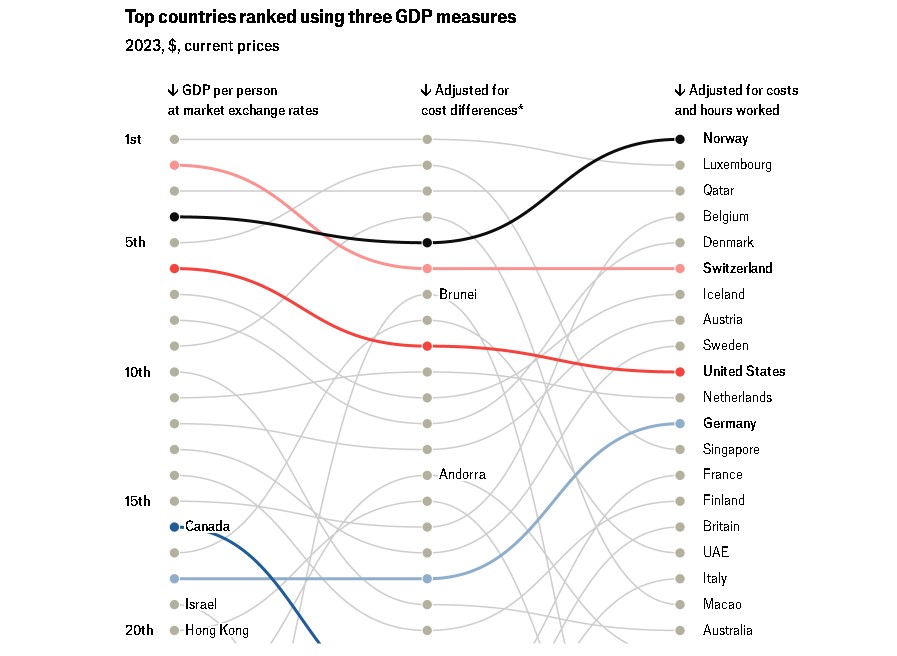THE WORLD’S RICHEST COUNTRIES IN 2024

By: The Economist
Photo: The Economist
Sorting countries into rich and poor can be difficult. Measures such as GDP are affected by population size (more people generally mean more output). But adjusting for population alone is not enough. Dollar income per person does not account for differences in prices between countries (a Big Mac, for example, will set you back more in some places than in others, even after converting into dollars). Nor does it account for productivity (overall output per hour worked).
To get a fuller picture, The Economist therefore ranks countries by three measures: dollar income per person, income adjusted for local prices (known as purchasing-power parity, or ppp) and income per hour worked. See where each country ranks below.
Take America first. Its GDP has been the largest at market exchange rates for over a century. But by income per person it falls to sixth, behind Luxembourg (first) and Switzerland (second). Adjusting for America’s higher prices pushes it down to ninth; accounting for its long workdays and limited holidays, to tenth. The results for China—the world’s second-largest economy in nominal terms—are even starker: it falls to 69th by GDP per person, 75th at local prices and 97th after accounting for hours worked. Singapore and Brunei exhibit some of the biggest differences between each measure, and Macau, a special administrative region of China, had the biggest increase in GDP per person compared with last year.
GDP per person in Burundi is just $200 a year—the lowest of any country in the ranking. It remains in last place even after adjusting for its cheap prices and below-average working hours (almost half its people are under the age of 14). Sierra Leone or the Central African Republic comes next, depending on which measure is used. Poorer countries tend to have large informal economies, however, which makes their total output and working hours harder to gauge.
Our ranking excludes some tiny overseas territories, such as Bermuda. It also excludes Ireland, where GDP calculations are a bit odd. Other factors also affect our ranking: we only provide average GDP per person, for example, but differences between the highest and lowest earners can vary significantly. In some countries official data may be misleading. And factors such as savings rates, salaries earned abroad and personal assets are also missing from our data, and could skew personal-income results (read our full methodology here). Caveats aside, the index is designed to give a more complete assessment of the world’s richest countries than does a focus on any single measure.




